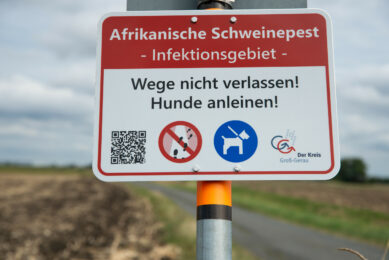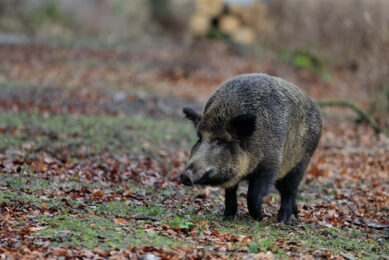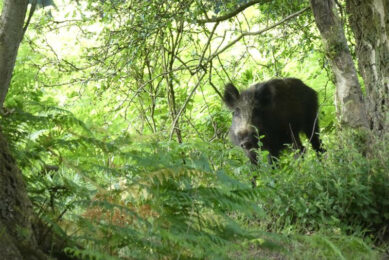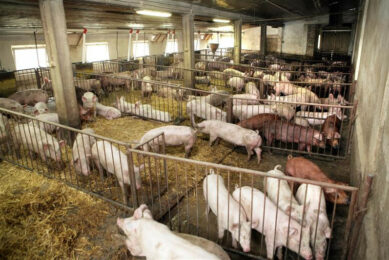How to prevent ASFv getting onto pig farms?
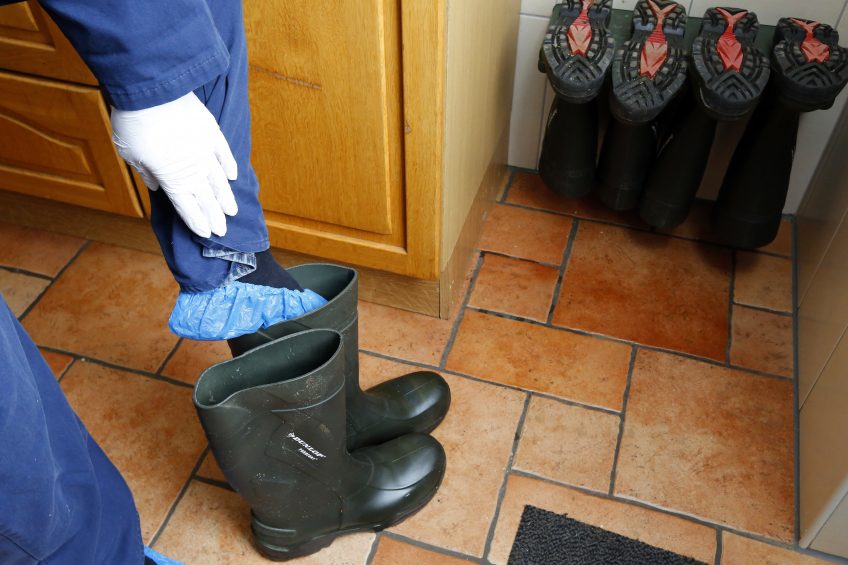
African Swine Fever (ASF) is slowly creeping towards western Europe, affecting mostly wild boar populations. It looks like the virus will not go away anytime soon. Which are the practical measure systems to minimise the risk of ASF entering a swine farm?
 Physical isolation of the herd
Physical isolation of the herd
Where possible, depending on the pig production system, isolation of a farm can be obtained by maintaining adequate distances between farms, by full fencing the herd and installing a closed entrance to the farm area.
 Introduction of new pigs into the herd
Introduction of new pigs into the herd
- Only pigs from trusted and certified sources should be introduced into the herd;
- Special attention should be given to the management of animal transport, and to the cleansing and disinfection procedures of the vehicles and the loading/unloading area;
- The number of suppliers for replacement stock should be limited. The health status of replacement stock should be evaluated before purchase;
- During the quarantine period, clinical surveillance should be combined with serological and virological surveillance, as appropriate.

 Disposal of carcasses
Disposal of carcasses
Vehicles collecting dead animals represent a major risk for the transmission of the disease. These vehicles should not enter the farm, and pig carcasses have to be collected outside the fence or premises. Drivers have to strictly follow farm biosecurity protocols and they should not enter the holding.
Carcasses of domestic pigs and wild boar found dead in the infected areas should be processed and tested to detect the presence of ASF virus. Carcasses, discarded parts from slaughtered pigs should be disposed by incineration or burial. No part of any wild boar should be brought into a pig holding.
 Vehicles, clothing and footwear
Vehicles, clothing and footwear
- Vehicles used for transport of pigs should be cleaned and disinfected immediately after each time transport of animals takes place, and if necessary before any new loading of animals using disinfectants, and provide documentary evidence that these operations have been performed.
- In cleaning and disinfecting the vehicles, attention should be given to the truck body, the loading ramp, the equipment that had contact with pigs, the driver’s cabin and the protective clothes/boots used during unloading.
- Drivers should follow farm biosecurity protocols when handling animals and, as a rule, they should not enter into pig holdings.
 Workers and visitors
Workers and visitors
- People entering the farm, including farmers and workers should not have been in contact with other pigs recently.
- Every visitor should be provided with specific clothes and footwear to be used and left on the farm.
 Slurry
Slurry
Commercial pig holdings should be provided with storage basins, which allow manure treatment with disinfectants. Where necessary, the dispersion of pig slurry on agricultural lands should be avoided since the virus can be introduced into the environment infecting wild boar and free ranging pigs.
 Genetic materials
Genetic materials
To ensure that semen is free from the ASF virus, provisions and requirements provided in the EU legislation and by the World Organisation for Animal Health (OIE) should be followed.
 Reducing direct pig‑to‑pig contact
Reducing direct pig‑to‑pig contact
The primary route of transmission of ASF is by direct contact between infected and susceptible pigs. Therefore, in risk areas it is necessary to adopt specific measures to minimise the risk of introducing the disease into the herd by direct contact, especially from wild pigs.
This article was compiled using a comprehensive review from 2016, authored by Italian scientists Silvia Bellini, Domenico Rutili and Vittorio Guberti, published in Acta Veterinaria Scandinavica.



